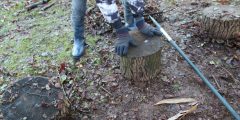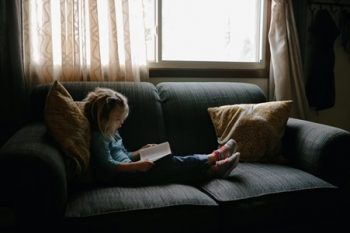Making History Count in the Primary Classroom: digging deeper into Ofsted’s primary history review.
July 22, 2022
Over the last year, Ofsted has published research reviews into a range of different subjects, designed to collate the most current and most helpful research. In the second of our University of Nottingham Primary Education Network meetings for 2022, Victoria Crooks led a session with a group of school leaders and tutors from the Primary …
Under the Microscope: a closer look at Ofsted’s science research review
March 9, 2022
Over the last year, Ofsted has published research reviews into a range of different subjects, designed to collate the most current and most helpful research. In the first of our University of Nottingham Primary Education Network meetings for 2022, our colleague Jo Hancock led a session with a group of school leaders and tutors from …
Why don’t you build me up, buttercup? A Forest School recovery plan.
January 21, 2022
As schools continue to evaluate the impact of Covid-19 on their learners, former Deputy Headteacher, Rachel Peckover, explains how her three-form entry, suburban junior school in the East Midlands, set up Forest School provision. The school aimed to tackle issues around pupils’ social development as a result of lockdown, as well as the rise in …
What are the signature pedagogies of teacher education?
August 13, 2021
At a time when teacher education is under the spotlight, Rupert Knight revisits Lee Shulman’s idea of signature pedagogies as a way of developing shared, ambitious principles for the education of beginning teachers. Learning to teach in England In the last year, the process of learning to teach has come under renewed scrutiny in England. …
Children reading in lockdown
June 21, 2021
In 2020, the National Literacy’s Trust’s (NLT) research revealed how UK children’s reading practices (age 8-18) changed during the first lockdown (from March 2020). Prior to the lockdown, the Trust’s Annual Literacy Survey had sadly revealed a 15-year low in children’s enjoyment of reading. However, the 2020 survey showed that children read and enjoyed reading …
Teacher resilience in Covid times
May 10, 2021
How can we support teacher resilience in Covid times? In this blog Esther Fulton considers how the current pandemic has affected the resilience of beginning teachers and suggests how key support can be put in place to help with this. As part of the ITE curriculum here at the University of Nottingham, one of the …
Assessment records in the early years: Reducing workload or reducing quality?
November 23, 2020
In this month’s blog, Cath Gripton reflects on the purpose of documenting assessment in the early years and cautions that we risk ‘throwing out the baby with the bathwater’ in reducing certain types of assessment records in the education of young children. Assessment documentation as evidence In a recent podcast, Camilla Gilmore stated that early …
Classroom practice in 2020: adaptation and opportunity?
October 22, 2020
In this post, Rupert Knight reflects on some of the changes to Primary classroom practice emerging this school year. Taking stock at the halfway point of this very unusual term, what are the questions that might arise as the school year proceeds? Not the usual start to a school year… When children and teachers returned …
Teachers’ changing professional identity
June 22, 2020
In this blog Esther Fulton looks at the processes involved in developing your own teacher identity, particularly in the current times. What does it mean to be a teacher during Covid-19? My own identity as a teacher educator has been dramatically altered during the last few months. My comfort zone has always been when I …
A dog’s life?
July 19, 2019
Children today are more immersed in virtual worlds and often lack the opportunity to interact with people, animals and nature during their formative years. This has then led to issues relating to wellbeing and mental health. In this post, building on an earlier one in this series on reading dogs, Esther Fulton considers the wider …










